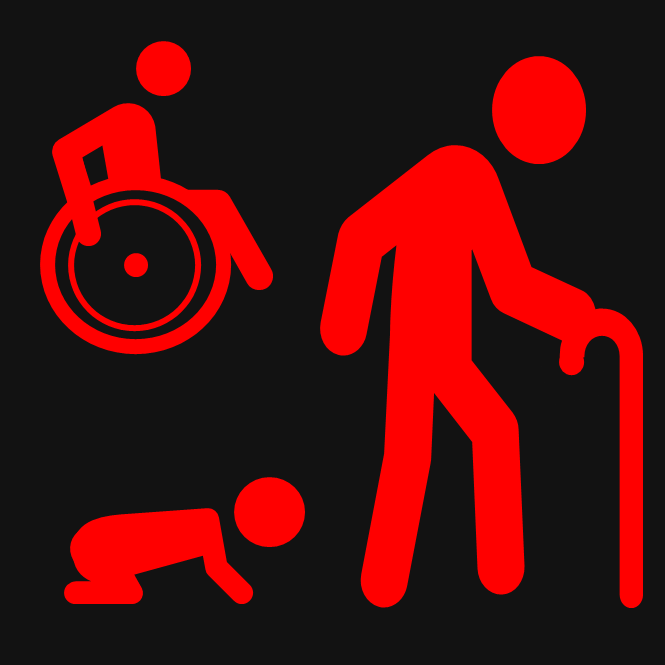Church. What do you mean?
(August 2021)

We live surrounded by criticism and commentary which is often uncontrolled and unmoderated online. I have to accept that my posts are part of this too. Complaints and concerns are easier to describe than resolve. Questions are easier than answers.
My hope is that acknowledgement of shared issues may help us respond thoughtfully, courageously and lovingly. My questions and thinking in relation to Church should not dispirit those working so very hard within our churches. They are providing a much better ‘service’ than me!
Questions…
We might say, “I’m just going off to church” or, “Your church is a bit too lively for me.” But who’s Church is it? Do we attend a church, or the Church of God? Big ‘C’ or the lower case one? Is Church in a physical location? Can church be someone’s house for most of the week, or is this just house group? Do we need a building at all, or does God’s presence in our bodies make His People His Church and Temple today?
Do we expect God to be present in a church building every week? If so, how do we know this and where does His contribution fit into ‘our’ programme?
Do our churches seem like the biblical examples? If so, where? Old Testament, New Testament, or both? What would Paul write to our church? What are our priorities? What are God’s priorities? Do they align in reality?
The word church means different things to different people in different contexts. In discussion we can falsely assume others understand it in the same way we do. I’ve attempted to make sense of my ongoing questioning in terms of…
- Church Steeple: Buildings, institution and infrastructure.
- Church People: Leaders and believers.
- Church of God: The Sacred.
Church Steeple: Buildings, Institution and infrastructure

Institutional Church structures and apparent priorities change over time. Referral after referral, renewal after renewal… I can’t find an institutional structure describing church detailed in any one part of scripture. There are however numerous biblical examples of God’s people in community and communion. There are criticisms too.
Scripture must be stronger than structure and not institutionally overpowered.
Demonstrable experience tells me that priorities for church success criteria are; building maintenance, getting people into the building, keeping them there. This helps with sustainable financial security; offerings, collection, direct debits, giving, common fund…
The mission of the Church is more than maintenance of the institution.
Institutional church is not necessarily a bad thing. This structure must match the theology it promotes as biblical truth. I think it is all too easy to become structural pedants.
Man made services can become explainable mechanical obligations.
We often provide consumers with entertainment in case God does not show up evidentially to offer the expected excitement and engagement obviously enough. Do we really expect Him to be evident in church? His presence in prayer and silence is not a good sell. Neither is teaching a balanced scripture, including the bits people don’t want to hear.
Teaching may not be appealing if it’s truthful.
“For the time will come when men will not put up with sound doctrine. Instead, to suit their own desires, they will gather around them a great number of teachers to say what their itching ears want to hear.” (2 Timothy 4:3)
Surrounding ourselves with others as formally misconceived as we are, is no good thing. Sermons should please God not people.
Services should provide for disciples and potential disciples, not consumers.
Should a sermon be 10 mins or 20 mins, as often prescribed institutionally by some. People won’t listen to more and we need to fit other stuff into the prescribed hour. In scripture I read of the excitement and desire to hear God’s word, pray and break bread. Is God the most important thing in our lives? Even the disciples were ready to send people away rather than let them miss their lunch. Jesus had other ideas. (Matthew 14:13-16) Yes a miracle happened.
Do we ever expect anything supernatural today?
I’m not convinced we do, but I do hear, “Must go, my Sunday roast is ready.” Conversely, people do want more than an hour a week of their latest TV box set. Episodes are even sold online in binge packages.
Is church any more than a happy hour?
I’m not anti-systems and structure. I even colour code my keys. Personally, compounded by my hospital experience, I became aware that it’s easy to convince ourselves of the value of systems themselves whilst forgetting who they should serve. Do we do things because we should, or out of tradition?
“They worship me in vain; their teachings are but rules taught by men.’ You have let go of the commands of God and are holding on to the traditions of men. And he said to them: You have a fine way of setting aside the commands of God in order to observe your own traditions!” (Mark 7:7-9)
We need Churches that are explainable in terms of faithful response to God rather than strategic planning, traditional or otherwise.
People judge Christianity by the lives led by those claiming to be Christian beyond any building. Are we known for our love for one another? (John 13:35) God’s power is in His people, not just his Church leaders.
A contemporary worldly focus on organisation and leadership can reduce church capacity. Leadership is not bad, we are all called to lead others to Christ. We don’t need to have a way with words. Check out what Moses achieved despite his fears. (Exodus 4:10)
And Paul, “When I came to you, brothers, I did not come with eloquence or superior wisdom as I proclaimed to you the testimony about God. For I resolved to know nothing while I was with you except Jesus Christ and him crucified. I came to you in weakness and fear, and with much trembling. My message and my preaching were not with wise and persuasive words, but with a demonstration of the Spirit’s power, so that your faith might not rest on men’s wisdom, but on God’s power.” (1 Corinthians 2:1-5)
Do we want our churches to be too perfectly polished and professional in our strategy to attract consumers?
Sometimes we have prejudices about a place or activity. I always thought Golf was for the rich elite where I’d feel out of place. At the age of 53 I went to a driving range for the first time to join in with family. I’m definitely no golfer. A Golf club is a space that I thought I’d be uncomfortable with, and hence had never visited.
Is that how people see church?
My time in Hospital following traumatic brain injury concluded in a Neurorehabilitation ward. Hospital treatment was vital. A few months were needed, but the rest of my life in there? I think hospital does all it can to help people to rehabilitate in life, to inhabit the real world in the best way possible. I think that is what rehabilitation and recovery is for.
I wonder whether believers can get too satisfied and safe in church whilst not in the world mixing with the very people who, like us, are loved by God. Senior and highly trained ordained church leaders can live within the church infrastructure for so long that they become disconnected from people who also work with challenges beyond the church community. Such leaders may even be unaware of this themselves. Those looking into church initially, can feel this incompatibility and discomfort and stay away, as I did from Golf.
There are currently new opportunities for lay (distinct from clergy) people to take on more roles within church, often driven by finance rather than mission. Will there ever be a lay; Bishop, Senior Pastor, Superintendent Minister or Archdeacon? Lay people may be untrained in liturgical matters and many church institutional structures, but they might be better connected to the people they should be serving and shepherding. Balance? Anybody wanting to be a Lay Bishop is probably precisely the wrong one for the job.
Are our Pastors capable of making a living outside of church? It’s expected of their congregation. We need to find a way for some in church leadership to get real by being better connected to what is real for so many. This is what I read in scripture where outcomes are most positive.
Does church facilitate separation from society or strengthen us to serve within it?
Church People: Leaders and believers

Church is a priesthood of all believers, not just an institution where a few paid workers lead volunteers. God’s anointing. 2 Corinthians 1:21-22
All people are contributors, not just the pastors, the worship leaders or even just the adults. Church should be full of outward looking servants rather than consumers.
Like others, I have been known to ask university graduates, “What have you done with your degree?” “What did you study?” How has university helped prepare you for this job, this life? Should we ask about the difference church attendance makes? Some, like me, have attended for years. Has church attendance changed or prepared me for the life God wants for me? We focus on getting people into church rather than on the quality of what goes out. Schools don’t get judged like this.
Should church have a Value Added measure?
Should church leadership be more distributive?
Foreground involvement often seems to come from a minority, whilst the majority sit, then go home after a chat. I often don’t feel valued when I know I am unable to contribute with the same quality as those up front. Oddly, the better they are, the worse I feel. My problem, not theirs.
Post-accident my capacity and ability has significantly reduced. I often feel like an observer rather than a member of Church and have considered moving to a context where, despite disabilities, I might add some value.
Churches must be full of potential contributors with untapped capacity. For healthy growth we need to work together. “From him the whole body, joined and held together by every supporting ligament, grows and builds itself up in love, as each part does its work.” (Ephesians 4:16) We need leaders, rather than managers. Leaders demonstrate, so that others can contribute too.
Leaders should equip, rather than deliver, all ministry.
Church members should contribute and not just listen to scripture from the front. “Do not merely listen to the word, and so deceive yourselves. Do what it says.” (James 1:22) Rather than give up on a church, as indeed I have been tempted to do at times, we all need to help one another toward love and good deeds. (Hebrews 10:23-25) Just turning up is not enough.
When at the front, our focus should be to put our God on display. It’s not about us. “If anyone thinks he is something when he is nothing, he deceives himself.” (Galatians 6:3) It’s not always easy, there may be anxiety and joy There are people with pain and suffering too.
Stepping up to preaching and teaching does need careful consideration. “Not many of you should presume to be teachers, my brothers, because you know that we who teach will be judged more strictly.” (James 3:1) It is more than a numbers game too. “Woe to you, teachers of the law and Pharisees, you hypocrites! You travel over land and sea to win a single convert, and when he becomes one, you make him twice as much a son of hell as you are.” (Matthew 23:15)
What should the ‘converted’ look like? What do we look like?
Maintaining unity is not always easy. We must, “Make every effort to keep the unity of the Spirit through the bond of peace.” (Ephesians 4:3) Has anyone produced an ordered list of the greatest and least sins? I hope not. All sin is abhorrent to God. We are all sinners but must love one another (John 15:12) despite our differences. We are all in unity through Christ. Check out, John 17:20-23.
“Religion that God our Father accepts as pure and faultless is this: to look after orphans and widows in their distress and to keep oneself from being polluted by the world.” (James 1:27) If we don’t love, we don’t know God. (1 John 4:7-11)
Children as leaders, surely not!
Church should indeed facilitate wisdom old to young (Titus 2:3-5) and parent to child, despite the challenges. (Ephesians 6:4)
But what can we learn from the children?
Children are not distractions to be hidden in their groups. They are our example. “I tell you the truth, unless you change and become like little children, you will never enter the kingdom of heaven.” (Matthew 18:3-4) The simple honesty of their prayers makes some of our liturgy a manikin of the real. They can do this before formal baptism, confirmation and electoral role type membership.
Is the spirit of God less powerful through them?
I know of a school child from an agnostic family who started school repeating what they may have heard elsewhere. After a number of weeks they offered an absolutely amazing, heart felt, prayer to share in an assembly.

My children have grown up and are now advising me what to read to develop spiritually. The goodness in them comes from the Father above. I’d like to take credit as a good parent with a lovely exemplar family, but the truth is far more amazing. Having read many of my posts and encouraging me, they then offer the best of advice and links to video clips and other resources. My daughter gave me a copy of “Letters to the Church” by Francis Chan because it resonated with what she has read in my previous posts. Knowledgeable loving daughters, excellent book.
We can undervalue children, by using labels to put them into manageable pens. Back to them and us. Who else do we undervalue in church? What are we all missing whilst we shelter people? Do we actually shelter the ‘undervalued’ from God because we underestimate them? What are we all missing from their potential contribution?
We must remember 1 Corinthians 12: 12-31. I am encouraged by v22 “On the contrary, those parts of the body that seem to be weaker are indispensable,” and v24, “our presentable parts need no special treatment.”
Sacred Church: The church of God

In my darker times of recovery, I have welcomed death, feeling that being with a God of love would be better and safer than being in the world with all of its troubles. But there is breadth and depth in His Hessed ‘character’ that includes moments of ‘anger’, particularly when we adjust His commands to suit what we think might be better. Being in the presence of God is truly awesome but we must never lose our perspective of who He is, God the all-knowing Almighty.
I’ve mentioned before, an encounter when I was completely alone, resting and calm on Beeley Moor as a teenager. I started to feel frightened as my awareness of His presence became stronger whist lying on a large rock in the middle of a stream surrounded by trees looming above. The fear disappeared as quickly as it came as I became overwhelmed by His love.
We must not mess around with the sacred. “And so I tell you, every sin and blasphemy will be forgiven men, but the blasphemy against the Spirit will not be forgiven.” (Matthew 12:31)
Failure to obey exactly can result in serious consequence. God offered supernatural drinking water to His thirsty people. Moses publicly failed to follow God’s precise instructions for achieving this. “But the LORD said to Moses and Aaron, Because you did not trust in me enough to honour me as holy in the sight of the Israelites, you will not bring this community into the land I give them.” (Numbers 20:12) Uzzah reached out for the untouchable ark of the covenant, perhaps for the right reason. His punishment could not have been more severe. (2 Samuel 6:6-7)
Do we ignore such scripture too readily because it’s a difficult message to hear?
I expect I’ll hear it said, “But that’s the old Testament, now we live forgiven by the blood of Jesus.” We may even celebrate that without reverence. (1 Corinthians 11:28-29) Don’t mess about with offerings either. (Acts 5:1-5) The fellowship of believers should be God focussed and culturally different. (Acts 2:42-47)
We must not develop a man made church for worshipers, rather than the worshipped, even if we think it’s for the right reasons.
Our coordinated culture of consumerism is a worldly way for advertiser’s and businesses. God is beyond, and so much more valuable, more Holy, than this ignorant, irrelevant, insolent, intransigent, internal, institutional irreverence. If church is not with God, is it Church at all? We should seek to be slower to speak and more eager to hear his words, and obey them. (James 1:19) Internal procedural politics is poison to the people of God. I know this personally when articulated priorities perversely misalign in practice. Is God’s word living and active in our lives? (Hebrews 4:12)

His presence should be enough. God’s presence is described as fire frequently throughout the bible such as the burning bush (Exodus 3:1-5) and tongues of fire (Acts 2:1-3) at Pentecost.
Fire is warming and illuminating but dangerous and not always safe.
We should not just assume we can go out, touch and connect with God on our own terms, even in a church building. (Hebrews 12:18-20) We must be led by the fire itself (Exodus 13:21), but unlike some, we should not get distracted. God has been described in many different ways. (Daniel 7:9)
We have started to strive for more by adding things without recognising the beauty and honour of being part of His Church. God, here in creation before His people. If I had not come out of Coma, but died, how would I want to be remembered? What would I like to hear as I stand before God, knowing what I’d done and not done?
Jesus loves His Church and we must never think it’s ours to disregard, mock or use as we desire.
The sacred is not safe without reverence.
We are built to become a dwelling place for Him with Christ as our cornerstone. (Ephesians 2:19-22)
We need to expect the unexpected, whilst with His people, with His Spirit and therefore the supernatural. “After they prayed, the place where they were meeting was shaken. And they were all filled with the Holy Spirit and spoke the word of God boldly.” (Acts 4:31) Would you like to be in a place like this? So very different from a trip to be entertained at the cinema? Even 4DX. When was the last time church was that exciting for us? Is it different now? Is that because we’ve changed, or God?
Conclusion
Church for me. Groups of people, joyfully, relationally with Him and serving Him sacredly as part of the immeasurable family of God. Immeasurable in time and location, powered and directed by God Himself, sharing His love demonstrably for all. Focused on His selfless, sacrificial, saving sacred service of salvation, through His son. We are to share His light, not hide it behind a building, however decorative.
Heaven on Earth.
Postscript Summary: Church IS…
Not about, our ‘I’
ignorant, irrelevant, insolent, intransigent, internal, institutional irreverence
IS about, His ‘S’acred
steadfast, secure, selfless, sacrificial, saving salvation service
Our Saviour, His Son



















